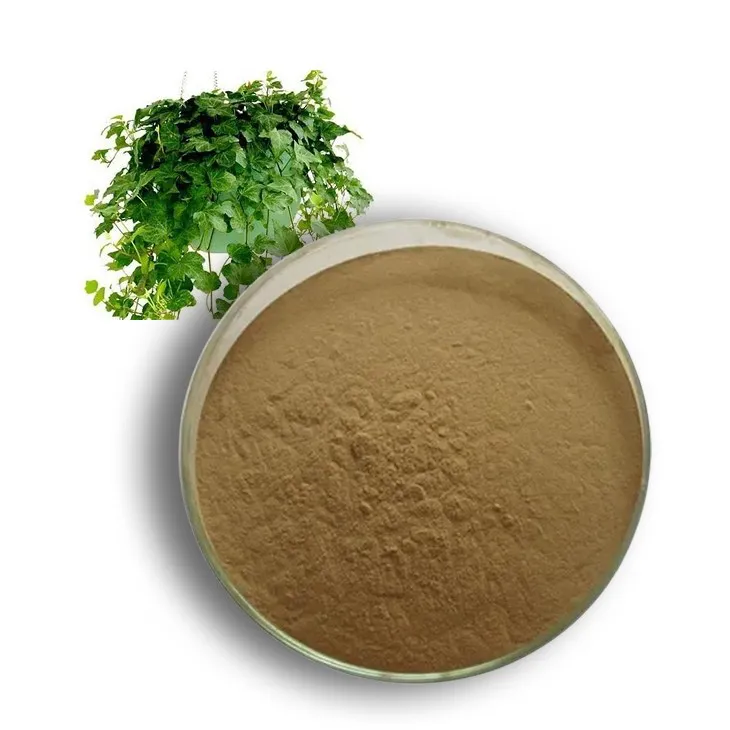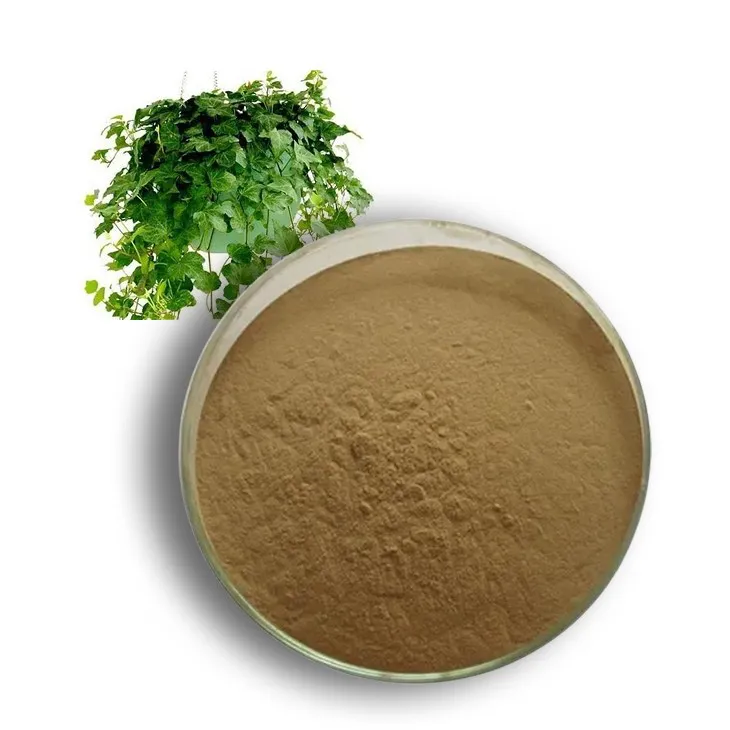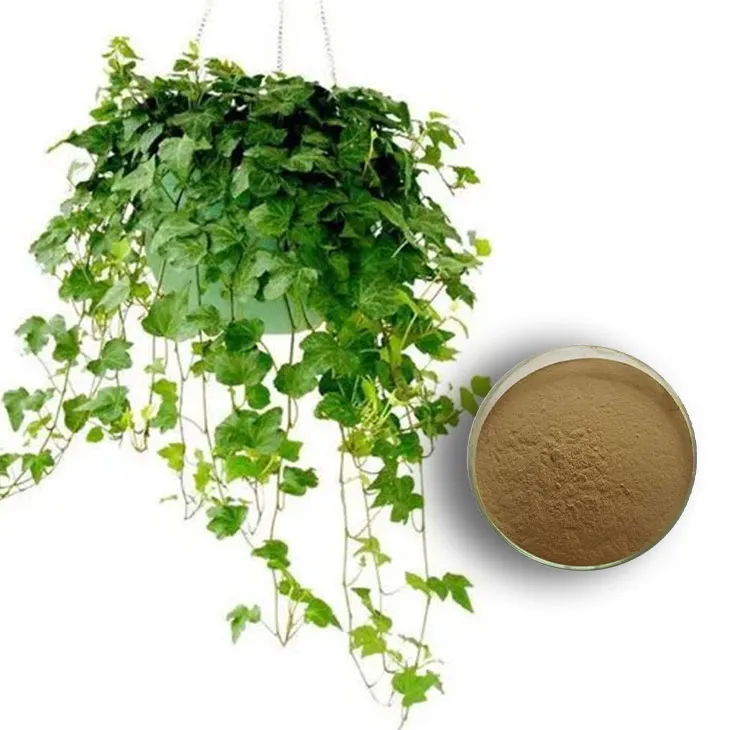- 0086-571-85302990
- sales@greenskybio.com
Ivy Extract in Trinidad and Tobago.
2024-12-14

1. Introduction to Trinidad and Tobago
Trinidad and Tobago is a remarkable twin - island nation located in the Caribbean. It is renowned for its rich biodiversity, which is a result of its unique geographical location, climate, and ecological systems. The islands are home to a wide variety of flora and fauna, and among them, the ivy stands out for its potential uses.

2. Ivy in Trinidad and Tobago
Ivy in Trinidad and Tobago has adapted to the local environment in a distinct way. It has certain growth characteristics that are influenced by factors such as the amount of sunlight, rainfall, and soil composition in the region. For example, the local ivy may have a more vigorous growth during the rainy season, and it may show different foliage colors compared to ivy in other regions.

3. Bioactive Compounds in Ivy Extracts
The Ivy Extracts from Trinidad and Tobago are rich in various bioactive compounds. These compounds play a crucial role in determining the potential applications of the extracts.
3.1. Chemical Composition
Some of the common bioactive compounds found in the Ivy Extracts include flavonoids, alkaloids, and terpenoids. Flavonoids are known for their antioxidant properties, which can help in protecting cells from damage caused by free radicals. Alkaloids, on the other hand, may have pharmacological effects, such as analgesic or anti - inflammatory properties. Terpenoids are also important as they can contribute to the aroma and flavor of the extracts, and may also have potential health - promoting effects.
3.2. Significance of Bioactive Compounds
The presence of these bioactive compounds makes the ivy extracts a subject of great interest. They are considered valuable resources for various industries. For instance, in the pharmaceutical industry, these compounds could be further studied and developed into new drugs. In the food and beverage industry, they could be used as natural additives for flavoring and fortifying products.

4. Potential in Medicine
The ivy extracts from Trinidad and Tobago have shown potential in the field of medicine, particularly in treating certain diseases and disorders.
4.1. Respiratory Disorders
Studies have suggested that the bioactive compounds in the ivy extracts may have properties that can help in treating respiratory disorders. For example, they may act as expectorants, helping to loosen and expel mucus from the lungs. This could be beneficial for patients with conditions such as bronchitis or asthma. Additionally, some compounds may have anti - inflammatory effects on the respiratory tract, reducing swelling and irritation.
4.2. Skin Disorders
The ivy extracts may also hold promise in treating skin disorders. The antioxidant and anti - inflammatory properties of the bioactive compounds can be beneficial for skin health. They may help in reducing skin inflammation, such as in cases of eczema or psoriasis. Moreover, they could potentially promote skin regeneration and wound healing, making them useful in the development of topical treatments for skin injuries.
5. Potential in Cosmetics
The ivy extracts are also being explored for their potential in the cosmetics industry.
5.1. Anti - Aging Properties
The antioxidant elements in the ivy extracts are of particular interest in the context of anti - aging cosmetics. Free radicals are known to cause damage to skin cells, leading to premature aging. The antioxidants in the ivy extracts can scavenge these free radicals, thereby protecting the skin from oxidative stress. This can result in reduced wrinkles, improved skin elasticity, and a more youthful appearance.
5.2. Skin - Rejuvenating Effects
In addition to anti - aging, the ivy extracts may have skin - rejuvenating effects. They can stimulate the production of collagen in the skin, which is essential for maintaining skin firmness and smoothness. Also, the extracts may improve skin hydration, giving the skin a healthy and radiant look.
6. Potential in Phytotherapy
From a phytotherapy perspective, the ivy extracts from Trinidad and Tobago offer several potential benefits.
6.1. Holistic Health Benefits
Phytotherapy is based on the principle of using natural substances to promote overall health. The natural substances in the ivy extracts may work in harmony with the body's natural systems to provide holistic health benefits. For example, they may help in improving the body's immune function, enhancing digestion, or promoting better sleep.
6.2. Compatibility with Natural Healing
The ivy extracts are in line with the concepts of natural healing. They are considered a more natural alternative to synthetic drugs and treatments. This makes them appealing to those who prefer a more holistic and natural approach to health care.
7. Challenges and Future Prospects
While the ivy extracts from Trinidad and Tobago show great potential, there are also some challenges that need to be addressed.
7.1. Sustainability
One of the main challenges is ensuring the sustainable extraction of ivy. Over - harvesting of ivy can damage the local ecosystem and lead to a decline in its population. Therefore, it is necessary to develop sustainable harvesting methods to protect the ivy and its natural habitat.
7.2. Research and Development
Further research and development are also required. Although some initial studies have shown the potential of the ivy extracts, more in - depth research is needed to fully understand their properties and mechanisms of action. This includes studies on the safety and efficacy of the extracts for different applications.
Despite these challenges, the future prospects of ivy extracts from Trinidad and Tobago are promising. With continued research and the development of sustainable practices, these extracts could play an important role in various industries and contribute to the well - being of people.
FAQ:
What are the unique growth characteristics of ivy in Trinidad and Tobago?
The passage doesn't specifically detail the unique growth characteristics of ivy in Trinidad and Tobago. However, it is known that the local environment in Trinidad and Tobago, with its specific climate, soil, and ecological factors, contributes to the growth of ivy in a way that may be different from other regions. This could potentially result in differences in the chemical composition of the ivy, which is of interest for its extract.
What are the specific bioactive compounds in ivy extracts from Trinidad and Tobago?
The passage doesn't mention the specific bioactive compounds. But generally, ivy extracts may contain flavonoids, saponins, and phenolic compounds, which are common bioactive substances in plants. In the case of ivy from Trinidad and Tobago, further research is needed to identify and study these compounds more precisely.
How can ivy extracts from Trinidad and Tobago be used in treating respiratory disorders?
The passage only suggests that ivy extracts might have properties for treating certain respiratory disorders, but doesn't explain how. It could be that the bioactive compounds in the extract interact with the cells in the respiratory system, perhaps reducing inflammation, soothing irritated tissues, or enhancing the immune response in the respiratory tract. However, this is all speculative until more research is carried out.
What makes ivy extracts from Trinidad and Tobago suitable for skin - rejuvenating products?
The antioxidant elements in the ivy extracts are what might make them suitable for skin - rejuvenating products. Antioxidants can help to neutralize free radicals, which are molecules that can damage skin cells and contribute to aging. By reducing this damage, the skin may appear more youthful and healthy.
How do ivy extracts from Trinidad and Tobago follow the principles of phytotherapy?
Phytotherapy emphasizes using natural substances from plants to promote health. The natural substances in the ivy extracts from Trinidad and Tobago may offer holistic health benefits. For example, they might interact with the body's systems in a gentle and natural way, rather than using synthetic drugs. This could involve enhancing the body's natural defenses, regulating physiological functions, and promoting overall well - being.
Related literature
- Ivy Extracts: Composition and Potential Health Benefits"
- "The Biodiversity of Trinidad and Tobago: Hidden Treasures in Plant Extracts"
- "Ivy in the Caribbean: Growth, Properties and Therapeutic Uses"
- ▶ Hesperidin
- ▶ citrus bioflavonoids
- ▶ plant extract
- ▶ lycopene
- ▶ Diosmin
- ▶ Grape seed extract
- ▶ Sea buckthorn Juice Powder
- ▶ Beetroot powder
- ▶ Hops Extract
- ▶ Artichoke Extract
- ▶ Reishi mushroom extract
- ▶ Astaxanthin
- ▶ Green Tea Extract
- ▶ Curcumin Extract
- ▶ Horse Chestnut Extract
- ▶ Other Problems
- ▶ Boswellia Serrata Extract
- ▶ Resveratrol Extract
- ▶ Marigold Extract
- ▶ Grape Leaf Extract
- ▶ blog3
- ▶ blog4
- ▶ blog5
-
Ginger Extract
2024-12-14
-
Cat Claw Extract
2024-12-14
-
Nettle leaf extract
2024-12-14
-
Shikonin
2024-12-14
-
Centella Asiatica Extract
2024-12-14
-
Oat Straw Extract Powder
2024-12-14
-
Black Rice Extract
2024-12-14
-
Aminolevulinic acid
2024-12-14
-
Cassia Seed Extract
2024-12-14
-
Cactus Extract
2024-12-14





















